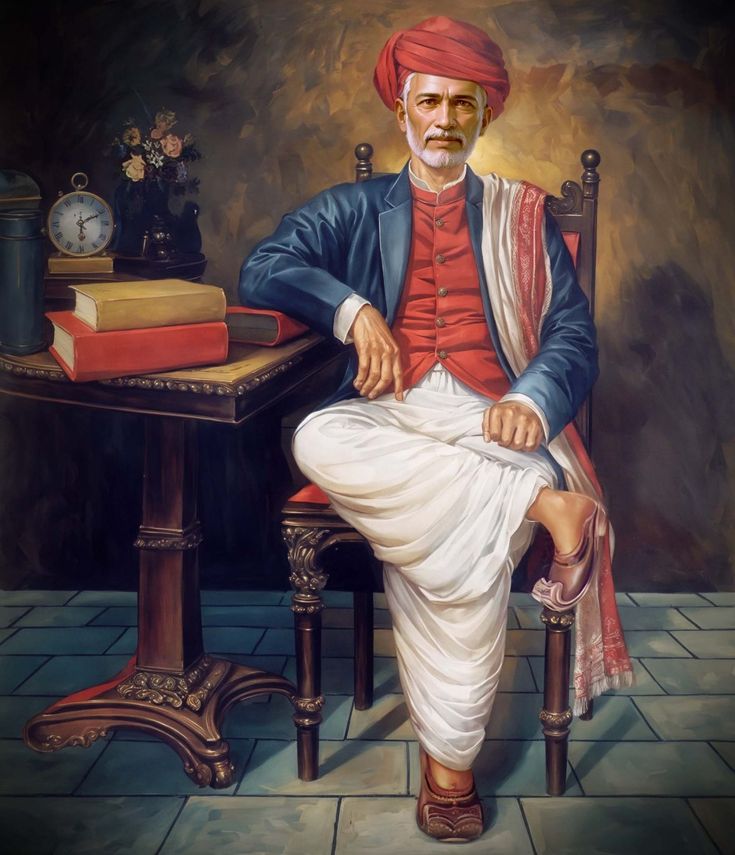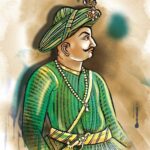Jyotirao Phule: A Revolutionary Reformer, Visionary, and Champion of Equality
Jyotirao Phule: Jyotirao Govindrao Phule (1827–1890), popularly known as Mahatma Phule, was a social reformer, activist, thinker, and writer who fought against caste discrimination and gender inequality in 19th-century India. His relentless efforts to uplift marginalized communities and promote education have made him one of the most respected figures in Indian history.
Let’s explore his life, achievements, and contributions to society.
Early Life and Background
Jyotirao Phule was born on April 11, 1827, in Katgun, Maharashtra, into a family belonging to the Mali caste, which was considered a “lower” caste in the rigid caste hierarchy. His family cultivated and sold vegetables and flowers, and despite their limited resources, they emphasized education.
Jyotirao’s intelligence and curiosity were evident from a young age. While societal norms discouraged education for marginalized communities, Jyotirao attended a local Scottish missionary school. Exposure to Western ideas of equality and justice deeply influenced his worldview, motivating him to challenge oppressive systems.
Key Contributions and Achievements
1. Pioneering Education for All
Phule believed that education was the foundation for social reform. In 1848, he, along with his wife Savitribai Phule, established the first school in India for girls in Pune. This was a revolutionary step at a time when women’s education was largely neglected.
- Savitribai Phule’s Role: She became India’s first female teacher and an unwavering partner in Jyotirao’s mission to educate marginalized communities.
- Schools for Dalits and Backward Classes: Phule also opened schools for Dalits and backward classes, breaking caste barriers and promoting inclusivity.
2. Caste Abolition Movement
Jyotirao Phule was a vocal critic of the caste system and Brahminical dominance. He referred to the oppressed castes as bahujan samaj (majority community) and sought to empower them through education, awareness, and social reform.
- Satyashodhak Samaj (Truth-Seekers’ Society): In 1873, Phule founded this organization to promote equality, fight caste oppression, and advocate for the rights of marginalized communities.
3. Women’s Rights and Social Reform
Phule championed women’s rights and worked tirelessly to address the injustices they faced, including child marriage, widow oppression, and lack of education.
- Widow Remarriage: He supported widow remarriage, opposing the inhumane treatment of widows.
- Female Infanticide: Phule raised awareness about the prevalence of female infanticide and advocated for its eradication.
4. Criticism of Religious Orthodoxy
Jyotirao Phule criticized religious practices that perpetuated inequality and exploitation. In his writings, he exposed the hypocrisy of the caste system and questioned the authority of scriptures that justified discrimination.
- Key Writings: His seminal works include Gulamgiri (Slavery) and Shetkarayacha Asud (The Whipcord of the Cultivators), which highlighted the exploitation of Dalits, women, and farmers.
Daily Life and Philosophy
Phule lived a life of simplicity and service. His day-to-day activities revolved around organizing awareness campaigns, writing thought-provoking essays, and mobilizing communities. He worked closely with his wife, Savitribai, and associates to build a society free from caste and gender discrimination.
Phule’s philosophy was deeply rooted in the principles of equality, justice, and human dignity. He believed that a society could only progress when all its members, irrespective of caste or gender, had equal opportunities.
Legacy and Impact
1. Empowerment of Marginalized Communities
Jyotirao Phule’s efforts laid the foundation for social justice movements in India. He inspired generations of leaders, including Dr. B.R. Ambedkar, who carried forward his vision of an egalitarian society.
2. Educational Reforms
The schools started by Jyotirao and Savitribai Phule became symbols of hope and empowerment for oppressed communities. Their work underscored the transformative power of education.
3. Social Awareness
Phule’s writings and activism challenged entrenched social norms, encouraging people to question discriminatory practices and work toward an inclusive society.
Observance and Celebrations
Jyotirao Phule’s birth anniversary, celebrated as Mahatma Phule Jayanti on April 11, is observed across India, particularly in Maharashtra. Events, seminars, and cultural programs are organized to honor his contributions to education and social reform.
Interesting Facts About Jyotirao Phule
- Inspired by Western Ideals: Phule was influenced by Thomas Paine’s The Rights of Man, which shaped his egalitarian vision.
- Support for Farmers: Phule was a strong advocate for farmers’ rights, criticizing landlords and moneylenders for exploiting peasants.
- Marriage Ceremony Reform: He simplified marriage rituals, opposing extravagant ceremonies that burdened poor families.
- Satyashodhak Marriage: He introduced this reform to make marriages affordable and free from caste constraints.
- Champion of Truth: Phule often used the pen as his weapon, writing extensively to expose societal injustices.
FAQs About Jyotirao Phule
1. Why is Jyotirao Phule called the “Father of Social Reform in India”?
Phule fought against caste discrimination, promoted education, and championed women’s rights, making him a pioneer in India’s social reform movement.
2. What is Satyashodhak Samaj?
It was a society founded by Phule in 1873 to promote equality, social justice, and the upliftment of marginalized communities.
3. What were Jyotirao Phule’s views on education?
Phule believed that education was the most powerful tool to eradicate inequality and empower oppressed communities.
Significance in Modern Society
Jyotirao Phule’s ideals remain deeply relevant today. His emphasis on equality, education, and social justice serves as a guiding light for efforts to create an inclusive and fair society. His work reminds us of the importance of standing up against discrimination and promoting opportunities for all.
Wishing Jyotirao Phule’s Legacy Forward
Honoring Jyotirao Phule’s legacy means continuing the fight for equality and ensuring access to education for every individual, regardless of their caste, gender, or social background. By embracing his vision, society can move closer to achieving true social justice.
Final Thoughts
Jyotirao Phule’s life was a testament to the power of courage and compassion in transforming society. His relentless efforts to uplift marginalized communities have left an indelible mark on India’s history.










